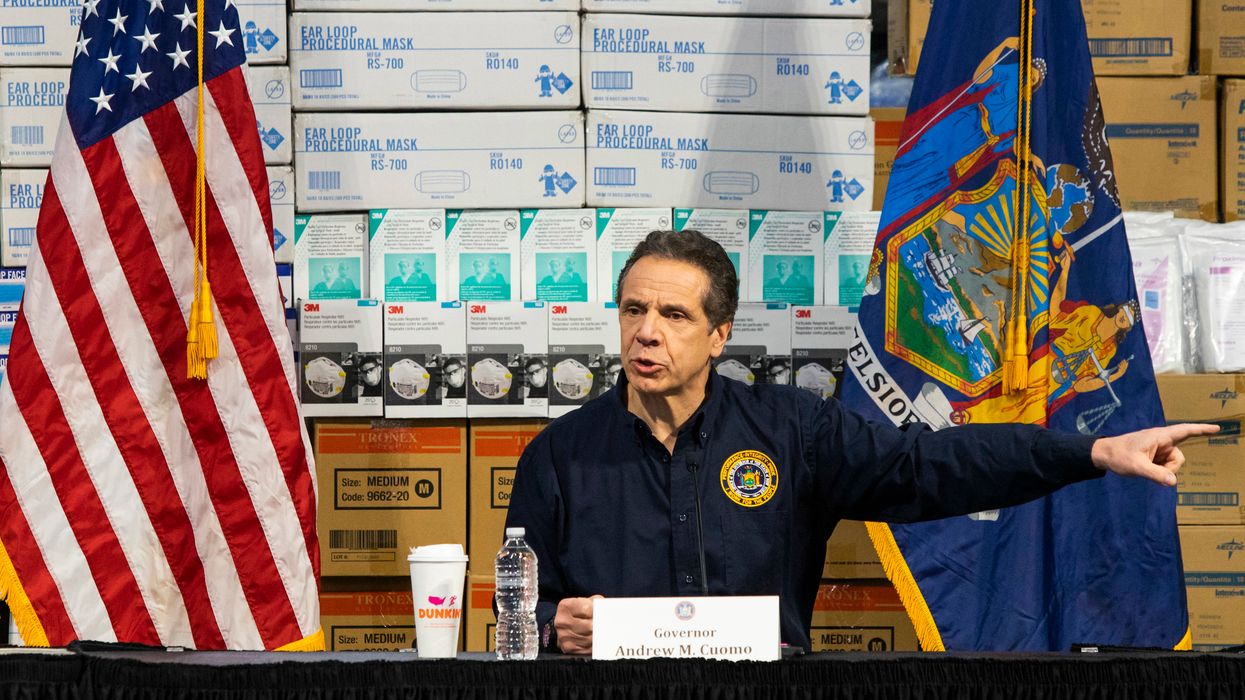The state at the epicenter of the American coronavirus pandemic is now positioned to be the final big prize in the Democratic presidential race.
New York on Saturday became the 11th and by far the biggest state to postpone primaries during the peak of the Covid-19 outbreak. Such delays are just one example of the broad array of ways states are responding to the historic public health emergency.
Also over the weekend, a push intensified in the biggest battleground state, Florida, to expand voting by mail in time for November. One judge was pressed to ease the Arkansas absentee voting deadline, while another judge made it temporarily easier to get on the ballot with petitions in Virginia. But the obvious problems gathering signatures during mandatory social distancing prompted the end of a ballot referendum drive in Arizona.
Here are the latest developments:
New York
Democratic Gov. Andrew Cuomo postponed presidential voting until June 23 — eight weeks later than scheduled, and in line with the state's legislative and congressional primaries. He acted just before the state reported that 1,218 people had died and 9,517 people in the state were hospitalized with the virus, both figures far ahead of any other state's.
"I don't think it's wise to be bringing a lot of people to one location to vote, a lot of people touching one doorknob, a lot of people touching one pen," Cuomo said at a news conference.
The Board of Elections had explored the possibility of holding the primary on April 28 as scheduled but entirely by mail, but concluded that county elections offices were not capable of processing the deluge of paper ballots.
With 274 pledged delegates at stake, New York's primary is the second most consequential on the Democratic calendar. Ten other states with a combined 820 delegates have already delayed primaries, all but a couple of them until June as well: Connecticut, Delaware, Georgia, Indiana, Kentucky, Louisiana, Maryland, Ohio, Pennsylvania and Rhode Island.
Virginia
A Richmond judge granted an emergency request to lower the number of signatures required to qualify for the ballot.
The decision resolves a request by Omari Faulkner, one of eight Republicans hoping to mount a longshot challenge to Democratic Sen. Mark Warner. He said that he was only able to get 3,769 signatures before the coronavirus shut him down — with another 6,000 to go. With the judge's approval, Virginia's signature requirement was lowered to 3,500, so Faulkner will be part of the June 9 Republican primary.
The judge's order did not eliminate the state's signature requirement in its entirety, though. The ruling only applies to Republicans running for the Senate this year — and the deadline for their petition signatures was last week.
Arkansas
A federal lawsuit filed ahead of runoffs Tuesday in a dozen counties asked the state to extend the deadline for accepting absentee ballots. State law mandates they be received by 7:30 p.m. Election Day, but the suit alleges this deadline "unconstitutionally burdens the rights of Arkansas voters, particularly black voters."
Christian Ministerial Alliance, a religious nonprofit organization, and the NAACP Legal Defense and Educational Fund asked that deadline be extended by 10 days and that the state be ordered to tell voters they have more time.
Arkansa voters, the lawsuit asserts, "should not also be forced to make the untenable choice between their safety and potentially endangering the lives of others and exercising their fundamental right to vote."
Arizona
A third petition drive has been called off by groups hoping to get referendums on the statewide ballot in November.
The latest to be called off was the Arizona Right to Know Source of Campaign Contributions Initiative. The measure would compel the state to obtain and reveal the identities of people donating more than $5,000 to a campaign's media efforts.
The group's leader, former state Attorney General Terry Goddard, asked the Legislature to allow for signatures to be gathered online — noting that leeway has also been given to people circulating nominating petitions.
Florida
The state and national Democratic parties launched a text message campaign to get as many as 1 million party members to vote by mail in November, when the state's 29 electoral votes will be intensely contested by both nominees.
The state Republican Party has also made nearly 140,000 calls to voters about alternatives to in-person voting. Florida allows people to request an absentee ballot for each election without giving an excuse.




















